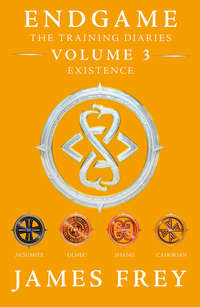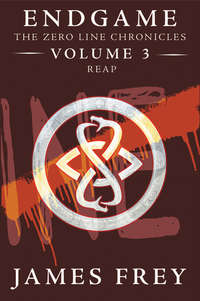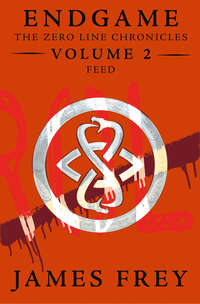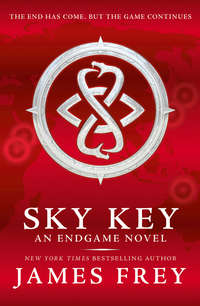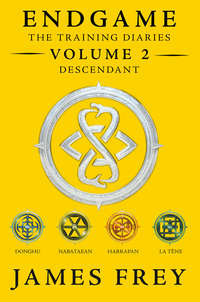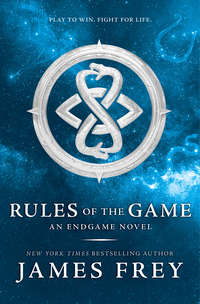
Полная версия
Existence
She doesn’t run away.
He tells her he doesn’t like it, hurting people—that he does it because it’s necessary. And she touches his scar again with those soft, careful fingers and says, “I believe you.”
When she asks if he’s ever imagined a different life for himself, turning away from what his family wants for him, choosing his own path, he doesn’t hesitate. “That’s not an option for me,” he says. Being a Tlaloc, being a criminal, being the Player, these things are inextricable for him, and none are choices, any more than breathing, or living. It’s a joy for him, serving his family and his people, living up to their expectations. To be the Olmec Player, to be the Tlaloc heir, these things define him, no matter how ugly or difficult they may sometimes be. “And even if it were … it’s not all pain and crime. My family does good things for Juliaca. We’ve built hospitals; we have several charity foundations. We make sure none of our people starve. We give to the poor. We only steal from—”
“The rich?” She laughs. “Okay, Robin Hood. You’re a hero of the people. I get it.”
If you only knew, he thinks, wishing that he could tell her the whole story, explain that he’s sworn to protect his people against an attack from the sky, against the end of the world, that he would sacrifice himself for the survival of the Olmec line—that he has already sacrificed so much.
And then he remembers that she is not Olmec. That if Endgame comes, he will not be fighting for her.
“I am who I am,” he says quietly. “Who my people, my family, need me to be. That’s all I can be. You wouldn’t understand.” He watches TV, he knows what life is like for people like her, who live sequestered from their own poor, who have infinite choices and no greater worries than alarm clocks and acne.
She threads her fingers through his, holds tight. “You’d be surprised.”
She tells him that she’s been taking ballet lessons since she learned how to walk—that her mother is a former prima ballerina who had to retire when she got pregnant, and who has never quite forgiven Alicia for ending her career. “She’s never forgiven me for being more talented than her either,” Alicia says, without modesty or bitterness, and Jago likes her all the more for it.
For thirteen years, Alicia has done almost nothing but dance. “Morning, afternoon, night,” she says. “I was homeschooled for a while; then I got into the academy, where classes are a joke—everyone knows nothing matters but dancing.”
“I bet you’re a beautiful ballerina,” he says.
“I was,” she says, again without modesty. He notes the tense.
It’s hard not to stare at the unfathomably long line of her neck, the graceful way her arms arc and wave as she makes her point. Every move is graceful, efficient, almost as if she were a fighter, like him. And maybe they’re not so different after all. The hard work, the oppressive training schedule, the tunnel vision for a life oriented around a single goal … he recognizes all of them, and wonders whether this is the magnetic field that draws them together, this singularity of purpose.
“I’ve been to Paris, Tokyo, Buenos Aires, Cape Town—name a city, and I’ve danced there,” she says. “Danced, and nothing else. No sights, no culture, certainly no local foods. Nothing that would get in the way of the training regimen. No distractions whatsoever.” She peers at him through lowered lashes. “Definitely no boys.”
“It can’t be as bad as all that,” he says. “You’re here.”
“Exactly. Because I quit.”
“What? You said dancing was your life.”
“It was my life, and what kind of life is that?” She steals the rest of his anticuchos, gulping them down with relish. “I couldn’t handle it anymore. I just did one plié too many, you know?”
He shakes his head. Tries to imagine walking away from his life, from any of it. Declaring independence from everything he’s ever known. There’s such a thing as too much freedom, he thinks. Freedom from everything can leave you with nothing.
“My father was cool about it, but my mother?” She shakes her head. “Freaked. Out. I finally convinced them to send me down here for six weeks, kind of a trial separation from ballet, you know? I’m supposed to be ‘thinking about my options.’” She curls her fingers around the words, and it’s clear that she hopes to do very little thinking while in Peru. “I’ve basically missed out on the first sixteen years of life, Jago. I plan to make up for it, starting now.”
“That’s a lot to catch up on in six weeks.”
“I’m very efficient,” she says. “It only took me four days to find you, didn’t it? And about ten minutes to catch you?”
She’s so sure of herself—so sure of the two of them, even though they’ve spent less than a few hours in each other’s presence. “You think you caught me, huh?” he teases her. “I may be more slippery than you expect.”
She puts her arms around him, pulls herself onto his lap. “Just try to get away,” she whispers in his ear. “I dare you.”
Summer school isn’t like real school, especially in Juliaca. Alicia has plenty of friends to cover for her, and the teachers and guardians at the study-abroad program don’t require much covering. There’s no one to care if she spends all her time with Jago.
So she does.
It’s different than it’s been with other girls: she doesn’t want him to buy her anything; she doesn’t care about his power, or the things he can make people do. She likes to hear the details; she finds it fascinating, the contours of power, the things he knows, the strings he can pull. She likes to hear about corrupt officials—who gets paid off and how much—about how you can learn to attune yourself to the smell of weakness and cowardice, about how to sniff out an Achilles’ heel, and exploit it.
She likes it, but he doesn’t like telling her, because he can see the judgment in her eyes, hear it in her voice. She’s fascinated … but she’s also repulsed. “I just think there’s something better out there for you,” she says, whenever he talks about his family and what they do, or what they expect of him. Or, sometimes, “The police really just look the other way? No matter how many laws get broken? How many people get hurt?”
She always phrases it that way. Not “when you break the law.” Not “when you hurt people.” She thinks he’s different from the rest of his family, different from this entire city, perhaps, and he knows he should resent that.
She makes him ashamed of the things he’s always been most proud of, and he should probably resent that too.
But it’s not resentment, the thing that burns in him when he looks in her eyes, when he speaks her name.
It’s a thing that has no name, that’s too big and powerful for words.
But if he had to pick a word, it would be love.
He likes her because she doesn’t want anything from him, because she doesn’t want him for his power or his money or his family name. But the bigger feeling, the one that wakes him up in the middle of the night, sweating and gasping from a nightmare in which he’s lost her—the all-consuming feeling that, as she once put it, has swallowed his life—that’s not because of what she wants. It’s because of what she sees.
She looks at him and sees a person he didn’t know he could be. Not Feo, not the Player, not the heir to the Tlaloc fortune. She sees Jago, the boy she loves, and this boy feels both like a stranger and like the truest version of himself he has ever known. He loves her because she sees not simply what is, but what is possible.
She asks to hear the stories of his scars. She wants to know who’s hurt him, she says.
“You should see the other guy,” he said the first time she asked, but she didn’t laugh, and he knows she understands the meaning behind his words.
“It’s not like I enjoy it,” he added quickly. “I don’t hurt people for fun.”
“I would never think that. It’s just …” She kissed the scar on his face. “I don’t care what you’ve done in the past, Jago. What you’ve done doesn’t have to define you. What your parents want doesn’t have to define you. Who are you now? Who do you want to be?”
“You say that like I get to pick.”
“You think this ugly life is all you can have, Jago, but you’re wrong.”
He wishes he could tell her the truth. That his aunts and uncles train him for more than the family business. That the reason he spends so many hours in the gym or at the firing range, the reason he speaks so many languages and knows how to make a computer do whatever he asks of it, isn’t simply for commerce and brute force. For all his life, being a Tlaloc and being the Player have seemed two parts of the same whole. Yes, he divides his time between training for Endgame and helping the syndicate. Yes, sometimes he wields his weapons in defense of the Olmec people and sometimes to preserve his family’s turf. But he’s been taught that these are the same: that Playing is a sacred family duty. That in return for their centuries of Playing, for the sons and daughters they’ve sacrificed to the cause, the Tlaloc family deserves compensation—they deserve respect and power.
But now, he wonders.
Perhaps he’s mistaken two duties for one. His family, his business, his bloodline … is it possible these are extricable after all, that commitment to one doesn’t necessitate commitment to all?
Alicia doesn’t like what she knows of his duty, because she thinks it’s about intimidation and corruption, greed and crime.
If she knew who he was beneath that, the solemn oath he’s sworn, the harsh gods he serves, she might think differently.
Or, he considers, she might not. Endgame is still about violence—war and blood. Alicia has no love for such things, and doesn’t want them for him, in any form. She wants to make his life beautiful.
She introduces him to Tchaikovsky and Prokofiev and Stravinsky, to the love poems of Pablo Neruda and the folktales of nineteenth-century Russia, all beautiful things she’s learned to love through ballet. He asks her, “How can you say ballet has blinded you to the world when you’ve seen so much?” and she says, “I want more.”
He plays Mudra for her, and Almas Inmortales and Sanguinaria and Hand of Doom, all his favorite metal bands.
“Ugly,” she pronounces the music, her word for anything she doesn’t like.
But for love of him she listens, watches carefully the look on his face as he turns up the volume and thrashes to the beat of the noise. It is ugly, and full of rage, and this is what he likes about it. This is the music that plays in his head and heart; this is the sound of his life.
“There’s no room for bullshit in this music,” she muses. “Nowhere to hide.”
“Exactly.”
She gets it; she kisses him, and though he is supposed to have left for the gym twenty minutes ago, though he’s already missed his last three weight-training sessions, he kisses her back, and knows he’s not going anywhere, not anytime soon.
So what if he’s neglecting some of his duties? Alicia’s only in Peru until the end of the summer. Everything else can wait for three more weeks.
Even Endgame. He hopes.
No one approves.
“Look who’s coming—it’s the invisible man!” Tiempo crows, as Jago joins his friends for a game of dudo, which he hasn’t done since he met Alicia. She’s taking an exam in her Spanish class—he spent all night helping her study, but still, he misses her for the two hours she’s not at his side.
“We thought you disappeared on us, Feo,” Chango says, shaking his cup of dice. Everyone in Juliaca plays dudo, from the little kids on the street to Jago’s great-grandmother. Jago has been playing it with his buddies ever since they were young enough to be betting with chocolate coins. Now they use real ones, and Jago almost always cleans up.
Once in a while, he suspects his friends of letting him win. They’ve known each other for more than a decade, yes, but he’s still a Tlaloc; their parents work for his. He tries not to think about it.
“Finally ditch la gringa?” José teases.
Jago scowls at them. “Don’t call her that.”
José holds out a cup of dice for Jago. “You blind? That’s what she is, Feo.”
“She’s Alicia,” Jago says. “And I’m not ditching her.”
“She probably ditched him,” Chango says. “Or she’s getting ready to.”
Jago has been looking forward to this afternoon, imagining that he would tell his friends how everything looks different now, how the world has changed—but now that the moment is here, he doesn’t know what he was thinking.
Chango, Tiempo, and José have fought with him—they would die for him—but they’re not interested in hearing about his feelings.
“How come you never bring her around, Jago? She embarrass you?” José asks.
Chango elbows him. “We embarrass him.” Chango has always been the smartest of the three.
“No way is that true,” Tiempo says. He, on the other hand, has always been the most loyal. “Tell him that’s not true, Feo.”
“That’s not true, Chango.”
“So you’re keeping her your dirty little secret because …?”
“If you ever found a girl who could stand your ugly face, you’d know why Feo wants to keep her to herself,” Tiempo says. “See, little boy, when a man and a woman really like each other—”
Chango rears back. “Shut your mouth, cojudo, or I’ll ram these dice down your throat.”
Tiempo only laughs. This is how they talk to one another, this is how they have always talked to one another, and Jago never saw anything wrong with it, until now.
Or, not wrong, perhaps; just less than. They know one another so well, love one another so much—why can they only communicate in jokes and insults?
“So what does Mama Tlaloc think of your gringa—sorry, Alicia?” José asks.
Jago shifts uncomfortably. “She doesn’t know about her.”
Now they’re all laughing. “Your mother knows everything, amigo,” Tiempo reminds him. “She just takes her time. Remember when we broke her bathroom window and blamed it on the gardener? And she pretended to buy our story?”
Jago doesn’t like to think about that. What his friends don’t know is that before his mother fired the gardener, she had him beaten bloody. His pain is on your shoulders, she told Jago. This is what happens when you’re too cowardly to tell the truth.
“She bided her time,” José remembers, shaking his head in admiration. “Waits six months, then—”
Chango slaps his hand against the pavement. “Bam. The Tlaloc hammer comes down. At the worst possible moment. She makes us all cry in front of the Laredo sisters.”
José smiles, sighs. “Ah, the Laredo sisters …” He tuts his finger at Jago. “What I remember most about the Laredo sisters is that you kept both for yourself. Always so greedy, Feo.”
“My point,” Tiempo says loudly, “is that you can bet everything that your mama already knows about your gringa, and you might want to deal with it before she does.”
“Or get rid of the problem,” Chango says, with what could almost be genuine concern. “You know how these tourists work, Feo. You’ve dated enough of them.”
“You’ve dumped enough of them,” José puts in, laughing.
“She’s slumming it,” Tiempo insists. “This is her vacation, but it’s your life. Don’t be so blind you do something you’ll regret.”
The only thing Jago regrets is joining his friends today, imagining that they could be happy for him, that they could accept that he’s no longer the person he used to be. He’s different now.
Or at least he wants to be.
He takes her to the desert.
He takes her to see the Nazca lines, those ancient glyphs that, for more than a thousand years, have spoken their ancient truth to the sky. He shows her the lines from above, hovering in a Tlaloc helicopter that he pilots himself; then they land and hike to the lines themselves, so she can feel the ancient dirt beneath her feet.
He doesn’t tell her that the lines scraped into the earth are messages from the Sky, that they symbolize an oath between an ancient people and their gods.
He doesn’t tell her that he once stood on this sacred ground and pledged his life to his line, and to a game that might end the world. That he slipped a knife across his palm, let the blood drip into the ancient lines, became one with his past and his future.
These things are forbidden.
Bringing her here now, when the tourists have faded away and they can breathe in the silence of a starry night, is the closest he can come to revealing his secret. He says it without words: This place is my heart. This ground beneath us, this sky above us, these messages from the dead—this place is my soul.
They lie on a blanket side by side, their hands linked, their eyes on the stars.
“Do you think there’s anyone up there?” she asks him.
“Do you?”
“Are we talking about God or little green men?”
“It was your question,” he points out.
She sighs. “I think … all those millions of stars, all those planets, we probably can’t be alone. But I kind of hope we are.”
This isn’t the answer he expected. “Why?”
She turns onto her side to face him, and he rolls toward her.
“I don’t like the idea of someone up there watching,” she says. “Judging, or whatever. I like the idea that we get to choose for ourselves what it all means. Who we’re going to be. And I guess …”
“What?”
“I … I don’t really know how to say it. I never talk like this. Or I never did before.” She touches his face, so gently. “You turn me into someone new, Jago. Every day, you make me a stranger to myself.”
“That doesn’t sound like a good thing.”
“It’s the best thing,” she tells him, and then, for a time, there’s silence, as her lips meet his and they find a wordless way to speak.
It’s not until they’re nodding off to sleep beneath the stars, her delicate body folded into his sturdy arms, that she finishes her earlier thought. “I guess I don’t want to believe in UFOs or in, you know, some kind of higher power, because I think it’s beautiful that we’re the only ones. Billions of stars, and only us to see them. Like a single spark in the darkness, you know?”
He squeezes her, gently but tightly, to say, yes, he does know. And he wishes she were right.
“You never answered. What do you think?” she asks. Her breath is warm on his neck. Her head lies on his chest, and he wonders if she can hear his heart beat.
It’s strange—this is the place where he became the Player. It’s saturated with memories and blood. But he’s never felt less like Jago Tlaloc, Player of the Olmec line. He feels like just a boy, lying beside a girl. He feels like nothing matters here but the two of them, their even breathing, their beating hearts, their warm bodies, their dreams, and their love.
She asks him questions no one has ever bothered to ask.
She trusts him to be gentle, to be kind, to be so many things he never knew he could be.
She thinks him beautiful, and here in the dark, he can almost believe it’s possible.
“I don’t know if we really are alone,” he lies. Then he says something true, the kind of thing Jago Tlaloc, Player of the Olmec, would never admit. “But that’s how being with you makes me feel. Alone in the universe. Only the two of us.”
“A spark in the night,” she whispers.
“A bonfire.”
Jago takes his friends’ advice about one thing: He tells his mother about Alicia. She pretends to be surprised.
“Invite the girl over for dinner,” she says, and it is not a request.
He obeys.
He always obeys his mother.
Jago picks her up in one of the family’s bulletproof Blazers. Alicia draws in a sharp breath as they approach the first of the guard towers, then seems to hold it for the entire long, winding drive up to the hacienda. He tries to see it through her eyes, this castle on a hill, and wonders if she’s judging him for living like a king despite the teeming swarm of poverty below. The Tlalocs do a great deal for the poor of Juliaca, but they could do more—they could always do more.
“This is amazing,” Alicia breathes, as they pull up in front of the beautifully manicured grounds and he opens her door. There’s something new in her eyes when she looks at him, and he realizes she never thought of him growing up in a place like this. He’s told her so much about the Tlaloc power—less so about the money that enables and derives from it. Other than that disastrous first date, he’s refrained from giving her lavish gifts or taking her out for expensive meals. Alicia isn’t that kind of girl.
But there’s a radiant smile on her face that he hasn’t seen before. “What?” he asks.
She shakes her head. “I just … I didn’t know.”
Dinner is exactly the disaster he expects it to be, although Alicia has no idea. Jago’s mother, Hayu Marca, is expert at appearing sweet and nurturing—but beneath these layers of maternal fluff is impenetrable steel. This is what strangers never seem to see.
Alicia is intimidated by his father, Guitarrero Tlaloc, who she assumes is the head of the family. Jago’s mother, on the other hand, greets her at the edge of the property and immediately envelops her in a warm hug, and afterward Alicia whispers to Jago, “I don’t know what you were so worried about; she’s lovely.”
Jago murmurs a noncommittal response.
The kitchen staff has gone all out, preparing an opulent spread of lomo saltado, aji de gallina, pollo a la brasa—the best Peru has to offer. Alicia eats heartily, and doesn’t bat an eye at the roasted guinea pig served whole, on a spit. She takes a small bite and pronounces it “interesting.” This is her highest compliment.
“Jago says you’re a dancer.” His mother’s English is flawless. Like Alicia, she refuses to call him Feo, but not because she thinks the nickname doesn’t fit. Naming a son is a mother’s prerogative, she always says. She’s not about to abdicate that responsibility to the streets.
“Was a dancer,” Alicia corrects her.
Jago’s father raises an eyebrow. “You quit?”
“I think there might be something better out there for me. Or at least, I just want the chance to find out.”
“And what do your parents think of all this?” Jago’s mother asks pointedly.
Alicia shrugs. “They’re parents. They like what they know. You know?”
“Mmm.” Jago’s mother frowns.
“But in the end, they want me to be happy,” Alicia adds, perhaps sensing things are going awry. “I mean, isn’t that what you want for Jago? For him to find whatever makes him happy?”
“What makes Jago happy is fulfilling his duties,” Jago’s father says.
“There’s got to be more than that,” Alicia argues. “I know you have a lot of family traditions here, but don’t you want him to find his own way?”
Jago takes her hand under the table and squeezes gently, hoping she will understand the message: Stop, please.
She does, and the subject abruptly shifts to the movies, and the difference between Hollywood and South American heartthrobs, something Jago’s younger sister and mother can both discuss at length, and Alicia does an excellent job pretending to care.
He knows it’s too late; the damage has been done. He waits through dessert, through after-dinner drinks, through his mother’s extended good-bye rituals, the compliments and hair stroking and promises traded, to keep in touch, to be family, to love each other because they both love Jago. He can tell from Alicia’s radiant smile that she thinks she’s aced her test, and she kisses him good night in full view of both his parents, promising to meet him for breakfast first thing in the morning. Then she climbs into the bulletproof car with the red talon slashing across its shiny black paint. Jago’s men will see her safely home.
They’ve already arranged to meet long before breakfast—Jago will slip out later and rescue her from her dorm, “like my very own Prince Charming rescuing me from a tower,” she likes to say.



